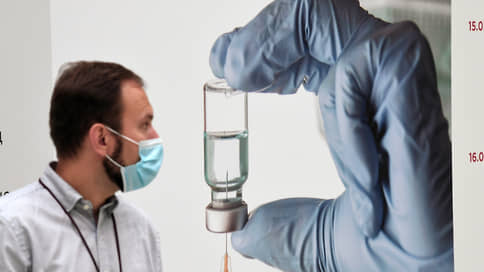The government has relaxed the requirements for the formation of state orders for medical products
[ad_1]

The government has relaxed the requirements for the formation of state orders for medical products. Now government customers will be able to combine several lots for such deliveries to conclude offset contracts. This, in turn, will relieve government contract executors from the need to create their own production site for the production of each type of medical products purchased by the authorities. The easing of conditions occurred at the initiative of Moscow, which occupies a special place in the regional government procurement market.
Requirements for certain types of government procurement of medical devices have been relaxed by a decree that adjusts the procedure for these procedures established in the spring of 2021. Then, by Resolution No. 620, government customers were limited in their ability to purchase different types of medical products at a competition within one lot. The innovation affected contracts under which the customer purchases not only medical products, but also consumables. It also extended to offset contracts (purchases with the condition of localizing production in the Russian Federation).
In February of this year, Moscow Mayor Sergei Sobyanin turned to First Deputy Prime Minister Andrei Belousov with a request to provide in 44-FZ new ways of concluding offset contracts, which would allow one way or another to either enlarge them, or carry out several purchases through a single supplier (see “ Kommersant” dated February 27). In March, the Ministry of Industry and Trade proposed to exclude a number of offset contracts from the scope of the 2021 resolution. As the department indicated then, the application of the established procedure caused an “undesirable increase” in the number of purchases by medical organizations. At the same time, it turned out to be difficult to find contractors willing to create their own production site to fulfill investment obligations for each type of purchased medical products.
As follows from the ultimately adopted resolution, the previous rules will not apply to three types of government contracts: life cycle; contracts that involve the simultaneous purchase of medical devices and consumables; offset contracts. This will reduce the number of procurement procedures and speed up the supply of necessary products to medical institutions, the government explained.
Relaxing the requirements for the formation of lots when concluding offset contracts can make them more attractive to Russian investors and, accordingly, increase the share of Russian products in the market. Now, according to the analytical company Meditex, the volume of the Russian medical devices market is more than 700 billion rubles. The share of domestic manufacturers accounts for from a few percent in the segment of high-tech equipment to half the volume of consumables.
It should be noted that amendments to government regulations at the initiative of the region have become rare in recent years. However, due to its population and budget, Moscow is the undisputed leader in the volume of regional government procurement among the constituent entities of the Russian Federation. It amounts to about 800 billion rubles. per year with a total annual volume of purchases under 44-FZ in 2022 of 11.1 trillion rubles. Regional budgets account for about half of government orders, which allows us to estimate Moscow’s share in it at 14% of purchases from all constituent entities of the Russian Federation. Moreover, the concentration of customers and suppliers and the high level of digitalization provided the capital of the Russian Federation with the status of an experimental platform for testing innovations in the government procurement market and allowed the mayor’s office to retain a significant degree of independence in organizing this market. Thus, Moscow became the main initiator of offset contracts and largely determined their configuration – due to the scale of the market and the desire of suppliers to guarantee themselves demand for future products. This probably explains the interest of the Moscow government, satisfied by the center, in easing the requirements for the formation of lots.
[ad_2]
Source link






